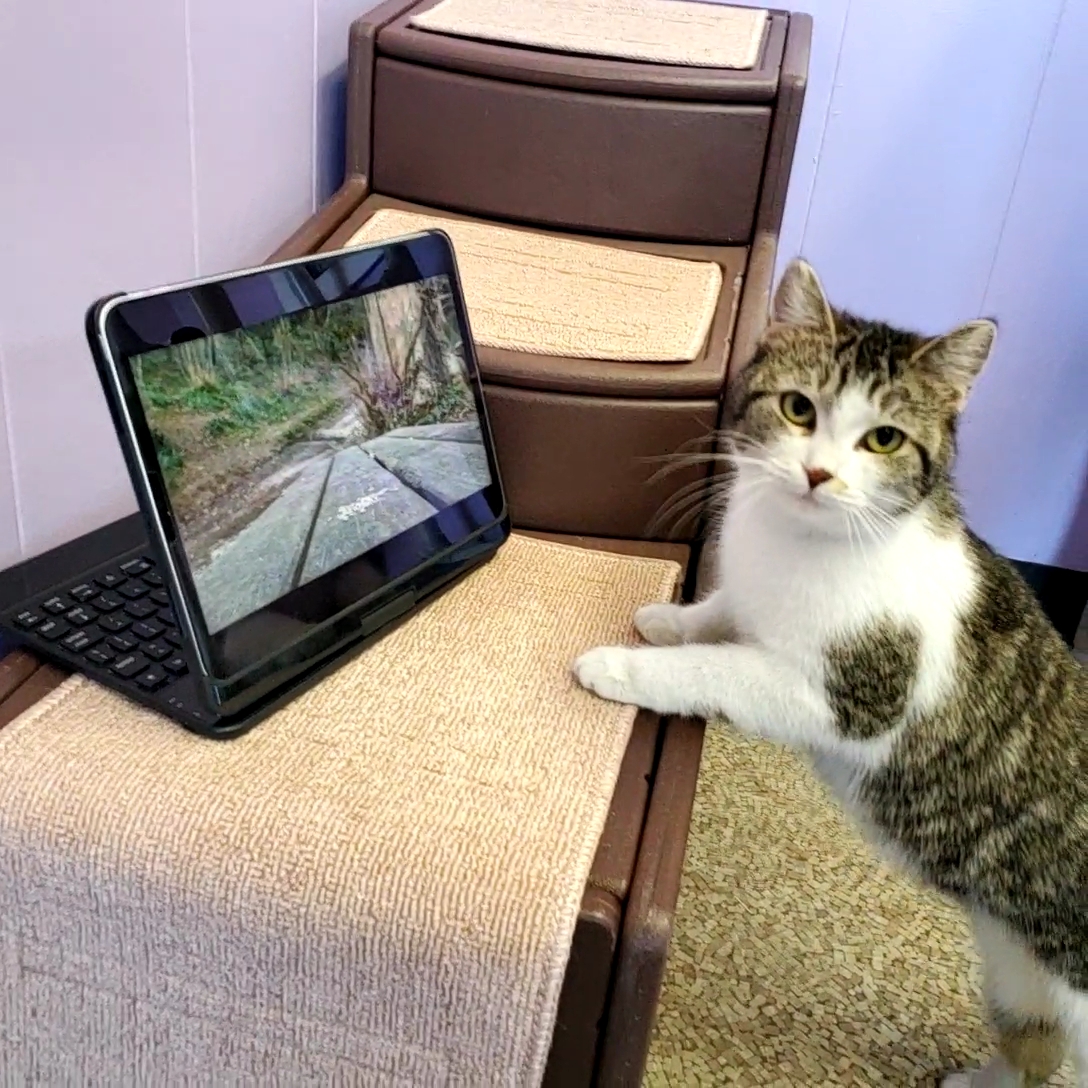Calling all cat people! January 22 is National Answer Your Cat’s Questions Day, and in honor of these furry friends, we decided to interview our shelter cats. Here are some of their questions that they would love answers to.
Question #1: Why do you buy me so many toys? I’m purrfectly happy playing with this wrapper I found on the floor.
Have you ever brought home a new toy you think your cat will love, only for them to be completely uninterested in it? Kittens generally have more concentrated energy and drive to play, but as your cat grows their energy levels fluctuate so too does their play style.
If you notice your cat does not want to play, take the time to observe their behavior and find out what they find interesting. Perhaps you have not found the right type of toy yet.
Your cat wants you to know that their toys are only as engaging as you are. Often, they have more fun watching you try to interest them in playing. We buy toys for our cats because we love them and want to enrich their environment.
Question #2: Why can’t I use that soft, plush scratching post? It’s not fair that only you get to use it and I get in trouble.
If your cat loves using your couches—and other furniture—as a scratching post, trust us, you are not alone. Cats have an instinctive need to scratch something. Doing so allows them to release energy, clean their claws, and provides a great stretching session.
Your cat is not scratching your furniture out of spite. One effective way to redirect your cat from damaging your furniture is by providing them with a surface that feels better when they scratch it. There are a wide variety of scratching posts, cat trees, and other cat furniture that were designed with that purpose in mind.
Redirecting your cat to scratching a cat-specific surface will take time and patience, but saving your couch is possible. If you would like more support, we offer affordable and compassionate feline and canine behavior advice and training for the community.
Question #3 Do you understand boundaries? I’m clearly telling you that I would appreciate some space.
Some cats want to be showered in affection, and others have a lower threshold for interaction. Every cat has a different personality and unique needs. Think of it like how some people are introverted and some are extroverted.
Understanding your cat’s personality will allow you to recognize their boundaries and body language. Does your cat have its ears flattened against its head, with a swishing tail? That generally means your cat wants space and is done being pet for now.
Learning how to recognize your cat’s body language can drastically benefit your relationship with your cat.
Question #4: Why don’t you think I like you? Do you think it’s a coincidence that I end up in the same room as you?
There is a common debate between dog and cat owners on who has the most affectionate pet. Dogs and cats are distinct species, so of course, they express themselves differently.
Many cats express affection by simply hanging out in the same room as you. They appreciate your company, even if it just looks like they are enjoying a good snooze.
Does your cat come running to the door when you get home from work? Guess what—that is another sign they care about you!
We hope reading your cat’s FAQs helps you bond with them moving forward! Yes, cats might seem aloof and mysterious at times, but they are not unknowable creatures. Understanding your cat just requires time and patience, much like any relationship. Are you considering adding a cat to your family? Thank you for considering adopting through the Humane Society of Macomb.

